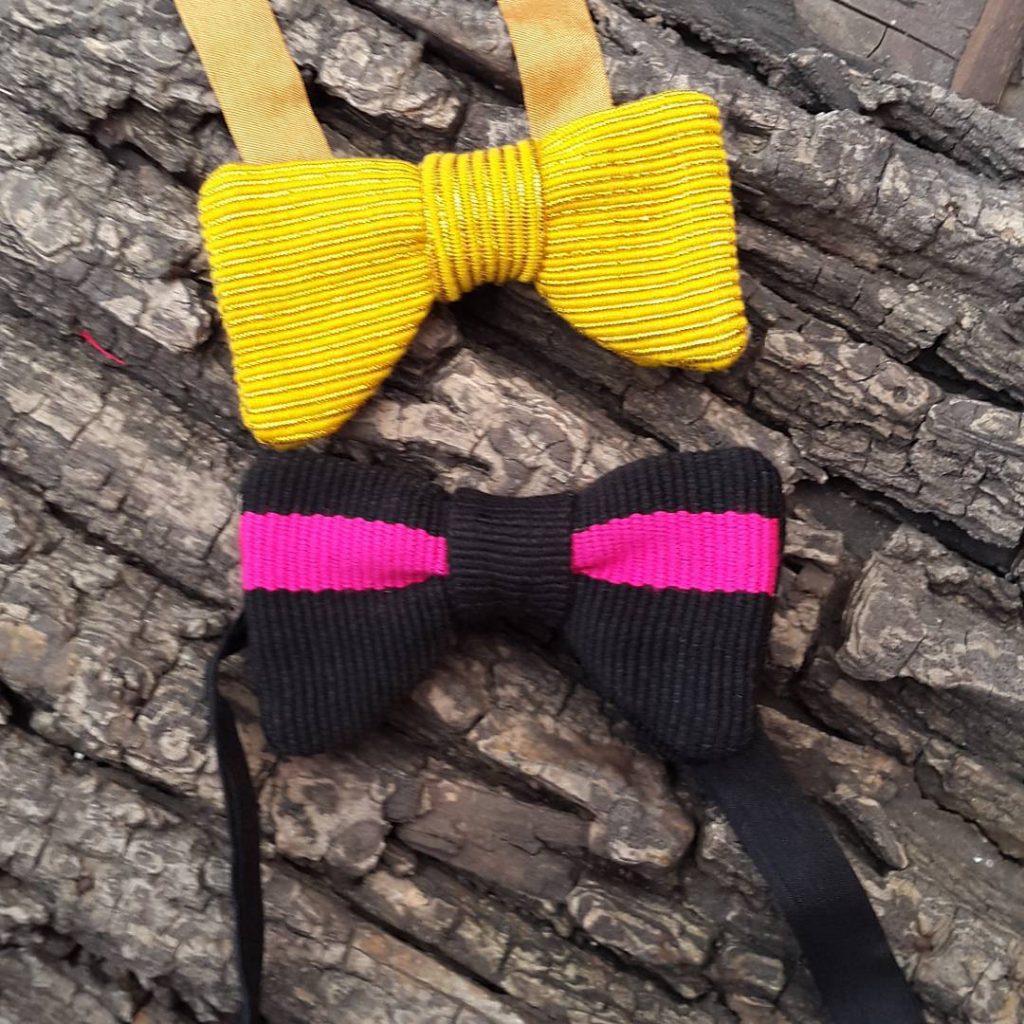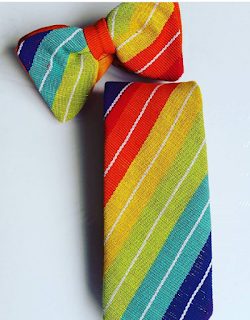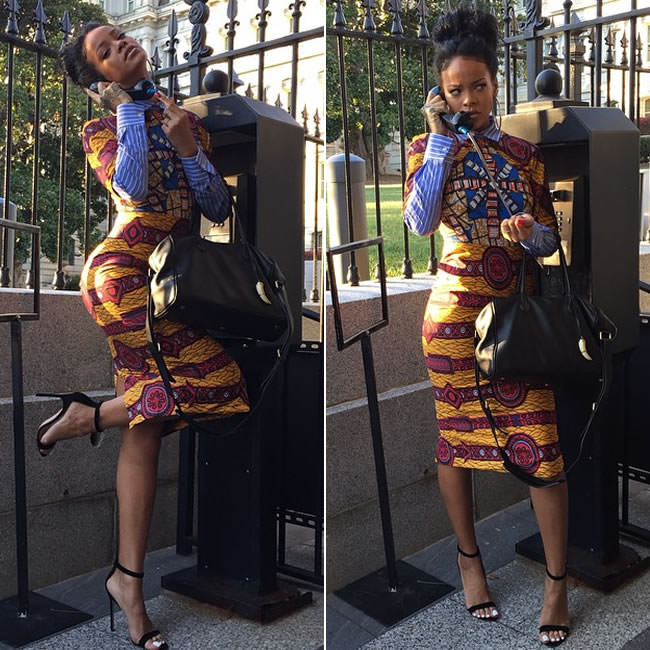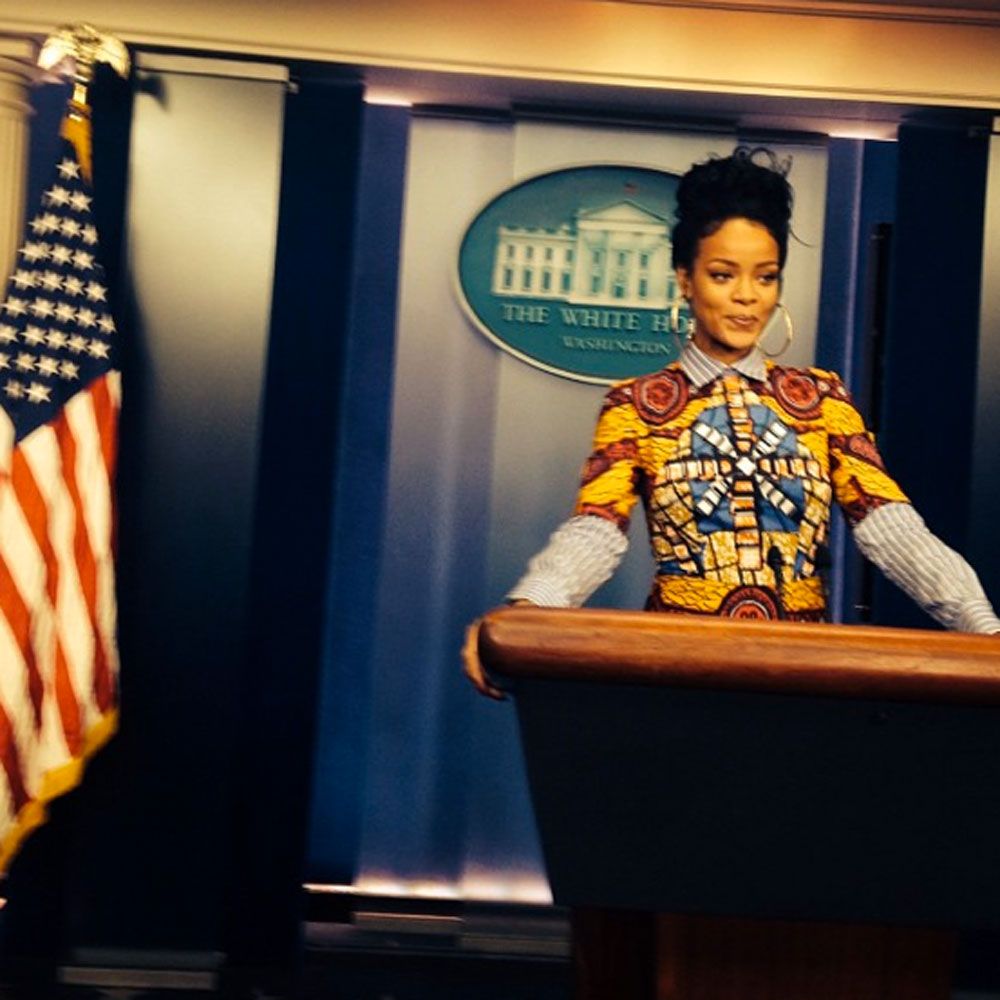[dropcap custom_class=”normal”] Dashiki (pronounced duh-shee-kee) is a colourful loose-fitting traditional African cloth that covers the top half of the body and widely worn in West Africa. The name dashiki originates from the Hausa word “dan ciki“, which means shirt. In 1928, Oba Ofuntola Oseijeman Adelabu Adefunmi made dashiki popular in USA. When he was 16, he developed an interest in African studies, so he travelled to Haiti at age 20 to know more about African religion. After some time he came back and started small scale manufacturing business which also involved production of African attire especially the dashiki.[/dropcap]Continue reading
Meet The Founder of ST Colours | Exclusive Interview
[dropcap custom_class=”normal”] I’m excited to introduce this young lady with the name Stephanie Obi to you all. I had connected with Stephanie over a year ago and we were just bbm friends (you know one of those friends you have on Blackberry messenger that you just keep seeing their recent updates but never holla, yes) LOL. It wasn’t until recently I spoke to Stephanie and the conversation lasted for almost an hour (pure intimate business gist). It felt like we had been friends for long. Stephanie is the founder of “St Colours”. Let’s meet her… [/dropcap]
Kaela Kay's Print And Pattern Fall Collection
[dropcap custom_class=”normal”]Catherine Addai is the face behind Kaela Kay Ghanaian fashion brand. She is very creative with prints, patterns and bold colours. Kaela Kay is a forward thinking clothing line that transforms bold and extravagant prints into sexy, feminine and modern clothes – with an African flare. Kaela Kay deals on unique and ultramodern blend of style and prints which makes women stand out in the crowd.[/dropcap]Continue reading
Ready To Wear Rose Garden Collection | Toju Foyeh
[dropcap custom_class=”normal”] Toju Foyeh is a Nigerian creative fashion designer who just released her latest ready to wear collection titled Rose Garden. The collecton consists of chic cocktail dresses, sequins dresses, gorgeous fully beaded dresses, floral and maxi dresses. They come in beautiful colours from pink, teal, red, yellow and more. [/dropcap]Continue reading
Woven Women Bag Collections | D'S Fashion
[dropcap custom_class=”normal”]D’s Fashion is a brand that deals on women accessories. Their bags and clutch purses are hand woven and uniquely made to to suite all occasions. D’s Fashion products comes with a product care guide telling you step by step on how to maintain your item. [/dropcap]Continue reading
Bold And Beautiful Bead Collections | Gbenga Dada
Check out Gbenga Dada’s bold and beautiful bead collections;
Continue reading
Eye-Catching Nigerian Gele Styles
[dropcap custom_class=”normal”]Gele is a Yoruba word for a female head wrap. Its origin is believed to be from Africa. Gele used to be just a common head wrap but it has transformed over the years to not just a common head wrap but a form of art. [/dropcap]Continue reading
Bellafricana Afrocentric Marketplace | Coming Soon
[dropcap custom_class=”normal”] Bellafricana is a marketplace where people around the world go to sell and buy unique Afrocentric and handmade goods. We are huge lovers of Afrocentric (made from Africa) and handmade products and services hence the reason we have created a platform to connect artisans, creatives, buyers, sellers and manufacturers. [/dropcap]
Aso-Oke Inspired Tie By Ty-Tys
Aso-oke has in recent times become more versatile in its use and is no longer limited to its traditional uses. The cloth is fast evolving into the fabric of choice for cutting edge fashion and trendy accessories in different countries and world regions.

Ademiluyi did something creative with neckties! Instead of cotton or usual silk materials that ties are often made of, he decided to make ‘Aso-oke neckties’, a hand loomed cloth intricately woven predominantly by the Yoruba people, using techniques that were developed centuries ago and passed down through generations.

The Yoruba people are from Southwest Nigeria. With a population of over 30million, they are also found in many West African countries and diasporic communities all over the world. The Yoruba people wear Aso-oke fabrics sewn in traditional styles on special occasions such as weddings, birthdays or christenings. Ty-tys neckwear is hand made and can be customized to meet your needs.
Source: http://kemiogunniyi.wordpress.com/2012/08/06/fashion/
https://mariamtijani.com/aso-oke-trend-vibrant-stripes-season/
https://www.kemimobuse.com/2017/09/i-am-lawyer-by-profession-and-i-make.html
To reach Ty-Tys, call +234 805 054 0564 or email [email protected] or visit www.ty-tys.com
Rihanna Class Up In Stella Jean Ankara Print Dress
Rihanna Class Up In Stella Jean Ankara Print Dress and what a moment it was! Rihanna visited the white house wearing one of Stella Jean fall 2014 collection. She looks cute and classy in this and well put-together here.

I just love the African influence, creativity and colours infused within each piece.
I love how this Stella Jean ‘Barbara’ sheath dress marries traditional African print with a borrowed-from-the-boys Wall-Street-esque striped collar and sleeves for eye-catching contrast.
This colourful look is from Stella Jean‘s Fall/Winter 2014 collection
https://www.bing.com/images/search?q=rihanna+class+up+in+stella+jean+ankara+print+dress&qpvt=Rihanna+Class+Up+In+Stella+Jean+Ankara+Print+Dress&FORM=IGRE




